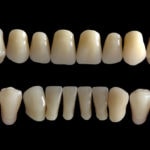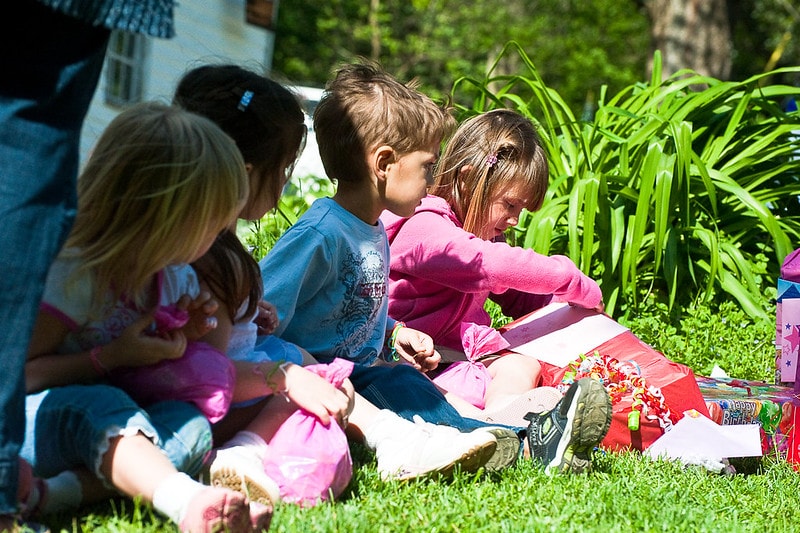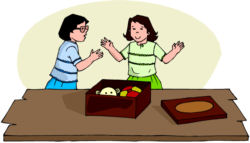by Brenda Nixon
“Don’t bite!” Ever say that in your classroom? Early Childhood teachers often find themselves in situations of biting and wonder how to correctly handle it. I’ve heard every cure from “bite ‘em back” to spraying a tot’s mouth with lemon juice. Please don’t. Changing a tot’s hurtful action is more promising if you respond correctly instead of reacting with a lemon juice attitude.
Always, try to understand the reason behind the biting. Sometimes a toddler bites, not to be aggressive or hostile but to ease the pain of teething. Every infant is born with teeth buds just beneath the gum line. During the first year of life, those teeth begin pushing their way upward and come in razor-sharp. This painful process makes the sufferer irritable. Biting is an instinctual way to smooth off the teeth.
Often biting incidents happen as sensory exploration – an educator’s term for putting stuff in his mouth just to learn about it. God made the mouth to be a powerful early learning organ and I’ve seen kids bite chairs, plants, even the dog. My daughter once bit a candle! When I foolishly asked why, she profoundly explained, “To see what it’s like.” For either of these previous reasons, the simple remedy is; frequently offer a tot soothing, slobber-resistant chew toys. Teething rings, a wet washcloth, or Popsicles are safe ways of relieving aching gums as well as satisfying that urge to explore with the mouth.
Immaturity is another reason a tot chomps. He has little experience with his new passionate feelings. When he gets over excited, jealous, frustrated, or even bored he may clamp down on the nearest thing – or playmate. It is not appropriate, it cannot be tolerated, but understand it is the only option he knows to express himself until you teach otherwise.
Help him become “emotionally literate.” Talk about feelings during neutral (non-biting) times. For example, during playtime you might say, “you’re feeling frustrated with that toy” or “you’re excited to be in Sunday school today.” Use books to help teach about feelings. There are wonderful library books in the teacher/parent’s section on emotions. Children love to be read to, so read books about happiness, sadness, anger, and loneliness. This way a little one learns the name for each feeling and over time makes the transition from using teeth to using words.
The book, No Biting Horrible Crocodile! by Shipton, is a delightful story about a little boy who comes to school dressed as a crocodile. He thinks he has to bite his classmates – because crocodiles bite. Quickly he discovers that nobody wants to play with him. It’s a childlike view of the unpleasant consequences to biting.
Whenever you have biting among two children, immediately separate them. Human bites contain more bacteria than most animal wounds. Wash the area with soap and water – your best disinfectant. Apply antibiotic ointment and cover the site with nonsticking Telfa pads. Never use iodine, alcohol, or Merthiolate as these can damage tender tissues. It also stings quite a bit which will intensify a heightened situation. Always inform the parents of the incident and advise them to see a pediatrician if swelling, redness, or pain persist.
Afterward, turn your attention to the biter. Acknowledge his feelings, “I know you feel angry;” set boundaries, “and I will not let you bite.” Then teach what to do instead of biting. Suggest the little nibbler hits a pillow, scribbles on paper, or comes to tell you about the conflict. These alternatives to biting are always safer and less upsetting in the classroom. Children must learn that feelings are always tolerable but the expressions of those feelings are not.
Once when I was speaking on this topic a mom asked, “What do I do when my son gets so excited he bites his younger sister?” Good question. First, I explained the overwhelming excitement youngsters often feel when playing with a baby sister or brother. Then I suggested she give him a substitute to biting, like squeezing his teddy bear. She tried it. Later she phoned my office to say it worked. Her son now knew what to with his energy overload – making mom and little sister much happier.
Remember, telling a youngster “no biting” is only half of your job. The other half is educating him on what to do instead.
__________________
As a speaker and writer, Brenda Nixon informs and affirms parents in their enormous task. She is a contributing author to seven books, the author of Parenting Power in the Early Years: Raising your child – birth to age five, and a popular conference speaker. For parenting tips, book information, and Brenda’s calendar go to her website: http://www.brendanixon.com.








